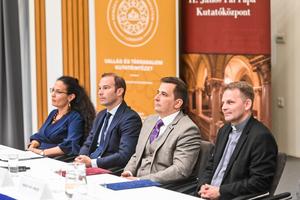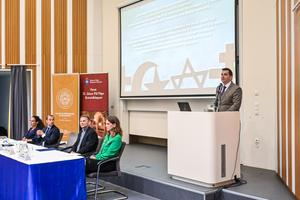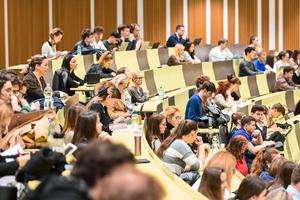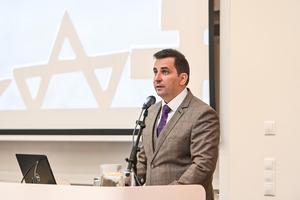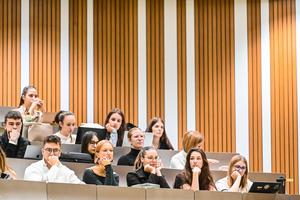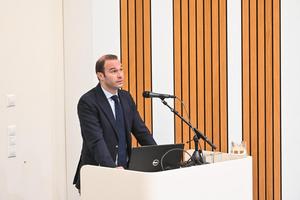“Nature and climate protection in church teachings – Interfaith dialogue in service of protection of creation” was the title of the conference organised on 18th May by the Research Institute for Religion and Society (Eötvös József Research Centre, University of Public Service) and the Institute for the Integrity of Creation (John Paul II Research Centre, Péter Pázmány Catholic University).
In his welcoming address, Gergely Deli, Rector of the UPS, underlined that this meeting for the professionals is not only of theoretical and academic relevance: the aim is to establish a broad social dialogue and to exchange ideas on a number of issues that discussed by the churches or attract public interest. In Hungary, the state and the churches are separate entities, but their cooperation is essential, whether it is related to education or child protection. The theme of protection of creation is a point of intersection between the public service represented by the UPS and the religiosity embodied by the PPCU. The Rector also mentioned Pope Francis’ first individual encyclical, Laudato si’ – or ‘Praise Be to You’ – which addresses several scientific problems, thus linking questions of science and religion.
KDNP MP István Hollik called attention to two best practices implemented in Hungary and determine the quality of life. The first is planning ten trees for every newborn baby in Hungary. As a result of this measure, the country's forest area has increased by about 450 hectares in the last three years. The second vital measure is that – under Hungary Helps Program – churches and schools are built for people in crisis zones, and skills are provided in a range of areas, such as water management and treatment, to help people to get by locally. He also stressed the principles of the Church teaching, patriotism, and pragmatism, which play a crucial role in the success of protecting the created environment.
Krisztián Vincze, professor and head of department, also highlighted those parts of the encyclical Laudato si' which deal with ecological issues. He enlisted phenomena that threaten our planet; global warming, greenhouse effect, water and air pollution, etc.), adding that we all have our duty and responsibility to protect our home and environment. This conference helps in the interfaith dialogue and sharing our thoughts since environmental protection must be addressed not only through science but also through religion. It is also essential to know that economic, social, and institutional choices all have an impact on the quality of life. The professor also spoke about the failures of the current Anthropocene era; the flawed mindset that human beings can do anything to the Earth. He emphasised the significance of metanoia; the Greek word refers to a kind of repentance, a change in how we think about the world and our Creator.
Hungary has gained considerable experience in adopting environmentally conscious behaviour, both in the context of the democratic transition in 1990 and the accession to the European Union, argued Brigitta Hidvéghiné Pulay, a fellow at the Institute for the Integrity of Creation. If we want to move forward on sustainability, the social, economic, and environmental questions must be addressed and considered together. It is often the case that we examine and analyse problems in detail, but much more energy needs to be devoted to finding solutions. Ms Pulay Hidvéghiné believes it is crucial to involve young people in this reflection to replace the fear associated with the issue with confidence.
In the rest of the conference, invited experts from abroad discussed the teachings of different churches on the created environment, the importance of further dialogue and opportunities for cooperation.
Text by Lilla Kovács, Ludovika.hu
Photo by Dénes Szilágyi
Translated by Ádám Darabos
